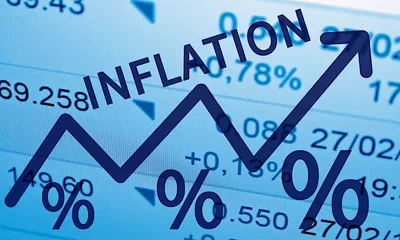The fixed-income segment of the Nigerian financial market showed considerable optimism but profit-taking transactions dragged equities market to a loss of N86 billion.
This is as Nigerians returned President Muhammadu Buhari for a second and final term of four years in office.
The Independent National Electoral Commission (INEC) announced Buhari as the winner of last weekend’s presidential election. He defeated former Vice President Atiku Abubakar, who has rejected the results and opted to seek redress at the tribunal.
Market pundits said the successful conclusion of the election has strengthened the outlook for the Nigerian financial markets. The considerable reduction in political risk, which has been a major factor in investment decision-making in the past 12 months, is expected to improve investors’ appetite for Nigerian stocks.
“Following the conclusion of the 2019 Presidential Elections, we advise investors to take position in fundamentally good stocks trading at cheap prices as we expect improved earnings to buoy performance in the near term,” Afrinvest Securities stated in post trading note to investors, despite a loss of N86 billion yesterday.
Financial market analyst and Fixed Income Trader, FSDH Merchant Bank, Mr. Babajide Sholanke, said the conclusion of the election had cleared the hurdle, while investors await the electoral court process.
“The fixed income market was buoyant today,” Sholanke said.
Chief Executive Officer, Sofunix Investment and Communications Limited, Mr. Sola Oni, said investors would consider the overall outlook of the economic direction of the government, noting that it would amount “to over dramatisation to link the decline at the equities market yesterday to final announcement of presidential election”.
The equities market has rallied more than 6.0 per cent gain this month and many believed that investors were taking profits on capital gains.
Oni said: “The announcement has put paid to an unusual waiting period for the final results. Regardless of the party that forms the government at any point in time, the critical issue is the economy in general and the financial market in particular.
“Any government that manages macroeconomic challenges will ultimately win the heart of the people. The most important thing that any government can do to build investors’ confidence in the capital market is to fix the economy. The economy is the underlying asset while the financial market which comprises both money and capital market is a derivative.”
He noted that economic development is a natural consequence of an enabling environment including infrastructure such as power, road network, airways, waterways, security of lives and property, sanctity of contracts and a host of others.
CardinalStone Partners Limited, an investment firm, said the conclusion of the election would bring much relief to investors as much of the nation’s economic activity in recent months have been conducted against the backdrop of electoral uncertainty.
Analysts at CardinalStone Partners said they expected the re-election of President Muhammadu Buhari to sustained the implementation of the Economic Recovery and Growth Plan (ERGP) to support growth, return of foreign portfolio investors to the equity market and sustained welfare programmes among others.
“A victory for President Buhari means consolidation of the progress made on economic growth since the recovery from recession and sharp currency devaluation in 2017. The domestic economy has recorded improvements, albeit sluggishly,” the analysts stated.
CardinalStone Partners noted that with enough clarity in the political space following the conclusion of the presidential election, the attractive valuation of Nigerian equities, a slowdown in United State (U.S.) Fed rate hikes and improved emerging market sentiment, foreign investors will show greater interest in the Nigerian stock market.
The firm said: “It is noteworthy that the equities market had been the preferred destination for foreign portfolio investments (FPIs) in the last five years, accounting for over two-thirds of total FPI inflows. Only recently did we begin to see a tilt in favour of money market instruments.
“Given the aforementioned, we foresee renewed interest in Nigerian equities. We expect the rally to begin in the banking sector, owing to its liquidity benefit and spill to other counters on the index, trading at relatively attractive valuations.
“Both foreign and local investors have already begun taking positions as evinced by average market breadth of two times witnessed in the past three weeks,” CardinalStone Partners stated.
The All Share Index (ASI) – the value-based benchmark for the Nigerian Stock Exchange (NSE), declined by 0.71 per cent from its opening index of 32,473.82 points to close yesterday at 32,244.24 points. Aggregate market value of all quoted equities also dropped from opening value of N12.110 trillion to close at N12.024 trillion.

 Health6 days ago
Health6 days ago
 Crime7 days ago
Crime7 days ago
 Comments and Issues1 week ago
Comments and Issues1 week ago
 Latest1 week ago
Latest1 week ago
 Comments and Issues1 week ago
Comments and Issues1 week ago
 Football1 week ago
Football1 week ago
 Comments and Issues1 week ago
Comments and Issues1 week ago
 Comments and Issues1 week ago
Comments and Issues1 week ago

